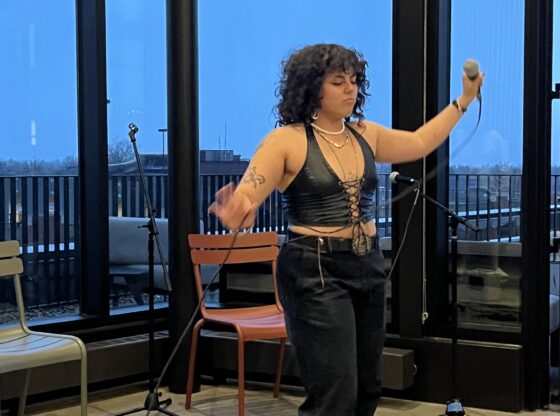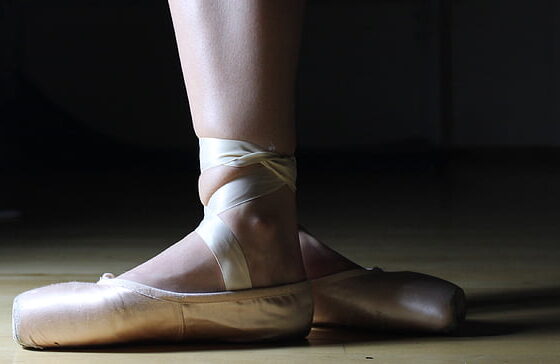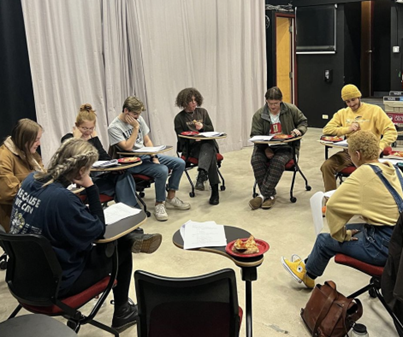Liberated, empowered women have been taking greater precedence than ever before in films released this year; these films encourage young women to be themselves, reach their full potential and aspire to be their own hero.
Gone Girl
Oct. 3
The story of “Gone Girl,” book-turned-novel written by Gillian Flynn hit theaters Oct. 3 and pits a feminist psychopath, played by Rosamund Pike, against a misogynist brute, portrayed by Ben Affleck, in perhaps the most twisted marriage of all time. When the wife, Amy, frames her cheating husband, Nick, for her murder, an ensuing battle starts for the viewer’s sympathy, as both lie and manipulate in order to survive. Despite criticisms that the movie’s portrayal of Amy is sexist, there’s no doubt that she embodies an empowered woman: she’s smart, strong and committed to accomplishing something she truly believes in – vengeance for her husband’s betrayal.
At the heart of her indignation and the argument for this being a “feminist movie” is Amy’s “Cool Girl” speech. As Amy is making her getaway, she goes on a rant about how women must become the “Cool Girl” to attract and please men.
According to Amy, the Cool Girl is a woman who pretends to like what men like to seem desirable. She’s the type of girl who unashamedly loves threesomes and anal sex, football, dirty jokes, drinking cheap beer, eating hot dogs — while amazingly still maintaining a size 2 figure — who never complains and is always ready to forgive her man’s shortcomings. The Cool Girl essentially says, according to Amy, “Go ahead, shit on me, I don’t mind, I’m the Cool Girl.”
Amy’s character can be seen as a reaction to patriarchy of today, a whole new breed of femme fatale. Classically, the femme fatale used her beauty to manipulate a male-made game, within the conditions men had set for her and embracing the persona they expected.
Amy opts out of this game, refusing to indulge male expectations; she is thus far the most-evolved representation of the femme fatale, and sets the stage for a far less compromising feminist movement.
Divergent
March 21
“Divergent,” based on the sci-fi series by Veronica Roth, came out in theaters earlier this year on March 21. This post-apocalyptic film deals with a society wherein members have divided themselves into factions in an attempt to achieve order and peace.
The heroine Beatrice “Tris” Prior, played by Shailene Woodley must overcome a myriad of challenges after finding out she is “divergent,” a rare non-conformist who doesn’t fit perfectly into any one of the factions and is therefore a threat to the society’s pre-established caste system.
The mathematical expression of divergent is, put simply, “having no finite limits.” The story of Tris empowers young girls and women with her determination to push her limits, with her bravery, her vulnerability and her precedence in a male-dominated society. This story, which revolves around such a courageous woman, is just the inspiration needed for girls and young women; it allows young women to imagine themselves in the roles of heroines, leaders and catalysts for change.
Maleficent
May 30
“Maleficent,” released May 30, is the newest take on Disney’s “Sleeping Beauty,” and explores the untold story of the evil fairy, played by a captivating Angelina Jolie. “Maleficent” begins in a picturesque land where fairies frolic blissfully. There, a beautiful, pure-hearted, young Maleficent falls in love with the human boy — and future king — Stefan, played by Sharlto Copley. All seems destined for Disney’s trademark happily-ever-after storyline until Stefan begins coveting the kingdom’s crown and betrays Maleficent to win the throne. After this brutal betrayal, Maleficent becomes thirsty for revenge. Seeking retribution, Maleficent places a curse on Aurora, the newborn daughter of the now king, played by Elle Fanning.
We all know this story, but this movie is told with a twist, taking feminist turns: in a particularly gruesome scene, Maleficent is lured by Stefan — a man she loves and trusts — to a secluded spot in the woods, where he drugs her, brutally strips her of her wings and abandons her passed out in the night. In this scene Maleficent is symbolically raped, and the remainder of the film is ultimately the story of how a woman overcomes the agonizing pain of that profound betrayal. In this movie, Maleficent’s wings are conveyed as her source of power and, like a young woman’s sexuality, are precious. The harsh manner in which they are sawed off her back causes her trust to be destroyed, her body to be violated, and ultimately, leaves her ravaged inside and out.
What follows is truly a survival story, as Maleficent regains her ability to love and trust. Eventually she reclaims what was taken from her — her wings — with the man who so viciously devastated her laying dead on the ground, and her hovering over him, a victim turned conqueror. Not only does this film refuse to let the prince be the hero — with a noticeably absent “Someday My Prince Will Come” — it also conveys a lesson to young girls to hold tightly to their own wings but also know they can never truly be taken away.











